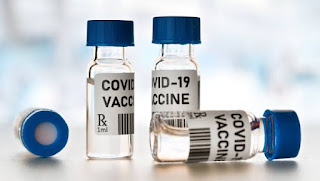COVID-19:Now mobile apps and dashboards available for update. How can this help you?
New apps to track corona virus
Accurate and up-to-date information about the new corona virus is vital, and that will be true for some time. Technology can speed up and simplify the way we share and collect it. Governments, hospitals, colleges and universities, and other groups are using mobile applications and dashboards to help in the public response to COVID-19. They can track symptoms, provide the latest data about the spread of the virus, help us to reduce contact, and much more.
How Apps Help With the COVID-19 Response
Governments, health care officials, and other private organizations are making apps and dashboards available to aid you find what you need to know concerning the virus in many different ways.
Self-screening. Apps can be an important tool for keeping record of your own health. There are several available on the internet. The COVID-19 Screening Tool from the CDC and Apple guides you through a series of questions about your health and exposure to the corona virus. It then helps you to determine whether to see a doctor or not. It also shares tips for social distancing, self-isolation, and symptom tracking. It's available as an app for iPhones and on the web (www.apple.com/covid19). WebMD also has a screening tool.
Contact tracing. Health departments use contact tracing apps to track people who may have come into contact with somebody with COVID-19. Apps allow to capture data and watch the movement of people to make the process faster and more helpful.
Information and resources. Apps and dashboards can supply the latest information about the virus and also about health and safety resources. The CDC’s official app provides up-to-date news on health and COVID-19. The World Health Organization (WHO) dashboard monitors the number of confirmed cases and deaths in world region and hardest-hit countries. You can't download this feature, but it's designed for easy viewing on a mobile app.
Research. Some colleges and universities have developed mobile apps to trace and study the spread of COVID-19 and its effects. Users submit data concerning their health and symptoms to assist researchers in finding ways to avoid future outbreaks. The COVID Control app from Johns Hopkins University lets you enter your body temperature each day to help researchers get an idea on where the next “hot spot” for the disease might occur.
Social distancing. There are lots of ways to use apps to allow us lessen contact with others. For example, restaurants can use them to alert customers when their table is ready to avoid crowded waiting places. They acan also help delivery drivers to ensure contactless deliveries. Some apps can help you check the space between you and another person to help you stay in a safe distance from others.
- Many health care providers have postponed in-person visits during the pandemic. Your doctor can see you virtually through telehealth. You can do things like schedule appointments, upload information such as your blood sugar levels, and video chat with your doctor.
Things to Look Out For
Social media apps are useful for sharing important information concerning the outbreak. But some use them to circulate things that aren’t verified. There are also privacy and security concerns when it comes to some apps, especially with ones that log your personal information and movement. Certain app makers are working to strike a balance between protecting public health and keeping your privacy.
Take precautions to stay away from fake apps. Some claim to track COVID-19 cases, but they’re sometimes really scams to infect and lock your device and demand ransom. The FBI says this type of crime is on the rise. Scammers will even pretend being government or health officials to steal your money or personal details.
To protect yourself from criminals, misinformation, and security concerns:
- Do your research. Before you download an app, read about the company that made it and check reviews.
- Check an app’s permissions. Permissions are information that the app can access on your device, such as your location and phone contacts. Ask yourself if the permissions make sense for the app’s purpose.
- Use trustworthy sources. Make sure that COVID-19 news and information on social media apps and dashboards are from a reliable source, such like government agency or a recognized healthcare organization
- Verify a person’s identity. If someone contacts you through an app and declares they work for a government or health group, contact the organization directly to confirm.











Comments
Post a Comment